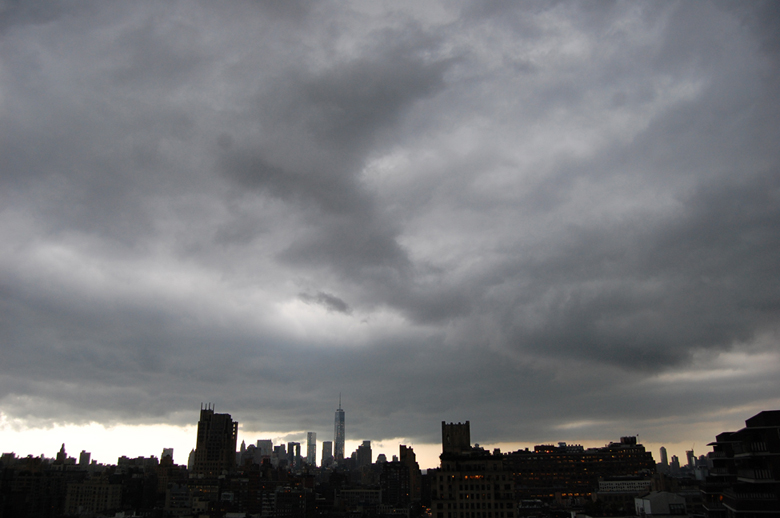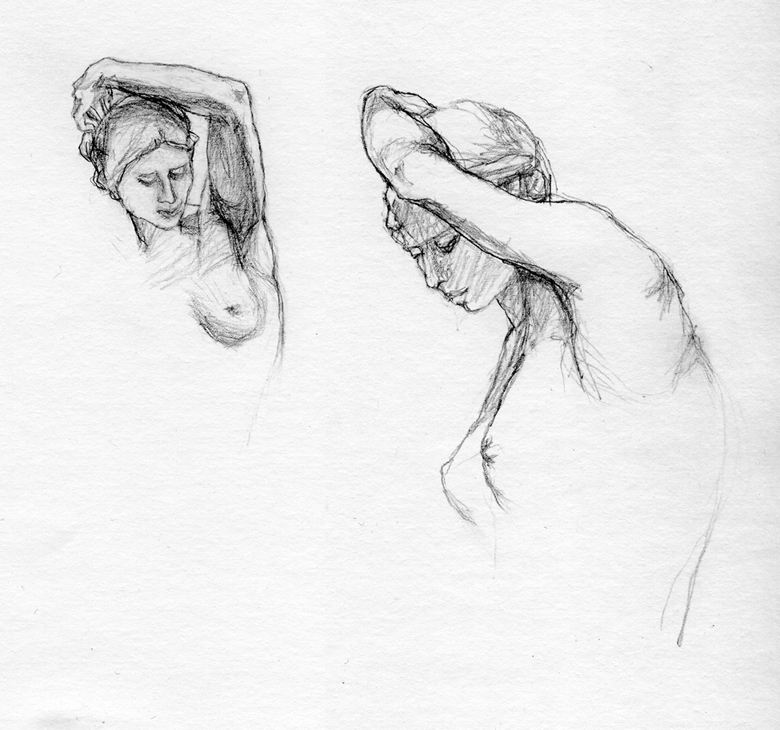XLIX
7/2/14
Hola Prima – had an interesting talk with T. today, turning again to the subject of what reading literature gives access to in a way distinct from other media. This came up as a result of discussing, of all things Pickwick Papers and Dickens’ work in general. He’s writing a novel that, as I understand it, is speciating into something he could not have anticipated.
Let loose the dogs of process!
xoxox, E.
Dear E.,
My regards chauds to T. This conversation re lit could become a circle, like a ripple post dropping a stone in the water.
We are in a muddle, culturally speaking. And I find it interesting to think back, would literature help people grow up? I just remember when I would visit someone’s house and head for their bookshelf to see what they were reading – have you read Soandso? what did you think of Whosis? I remember when read what I thought was a really good book, and I’d want to go out and change my life, hop a freighter, teach illiterate children, learn Russian, go count sea turtles… etc. It’s not so easy to remember what books did that to me, now: all those wonderful Russian novels, my Bohemians in Paris period, Marcus Aurelius, Catch 22, Grapes of Wrath, Gunter Grass, Isaac Bashevis Singer (what was the title of that short story, “The Spinoza of Market Street”?), Go Tell It on the Mountain, Yes, Dickens, Twain, 100 Years of Solitude, por supuesto, Borges, Miguel Asturias, Kafka, Wilson Harris (though he bewildered the bejesus out of me), Li Po, I could go on…
I miss that.
Xxoo, P.
Hola Prima — I would like to open a discussion about what it is that literature, particularly the novel, affords access to, and for whom.
At the moment, I’m especially interested in noting how many writers I know who used reading, as children, as a primary means of psychic survival. One could say it allowed for a strategic retreat from impossible personal realities. Of course I’m thinking of Jimmy Baldwin here too.
But, again, what was accessed through that retreat, or detour, into the representation of other human experiences, that ultimately allowed them / us to rejoin the “actual” world, albeit transformed somehow into that strange hybrid creature: the writer?
Book of Changes, hah! Changes of Book.
xoxox, E.
The writer. Of wrongs.
The Greek imposition of mind on nature. The revolutionary “discovery” becomes a radical circumscription.
It is through words that ideas are accreted, and it is through words that ideas are dissolved.
You need not know of the doctrines and writings of the great masters of antiquity, of Plato and Aristotle, you need never have heard their names, none the less you are under the spell of their authority… Our entire thinking, the logical categories in which it moves, the linguistic patterns it uses (being therefore dominated by them) – all this… is, in the main, the product of the great thinkers of antiquity. Quoth Theodor Gomprez via Erwin Schrödinger in Nature and the Greeks, New York: Cambridge University Press, 1954. Or, as Madge the Manicurist, says in old the Palmolive ads: Honey, you’re soaking in it.
If only we had logic…
Yes, but if we had only logic…
All roads lead to and away from Attica.
We are Siamese if you please.
We are Siamese if you don’t please.
Value is neither here nor there.
How do you account for the non-rational?
The wheel is not merely a thing, it is a kind of event…
Dialectic is a grinder, hungry for meat.
Christianity is a crucial fiction.
In determinism, Being always lives, and attempts to shine, under the shadow of annihilation. Fifty-some years ago, I attended several Be-ins. Even then, a thought, unvoiced came and said: but compared to what?
When did the great reaction begin? In the breathless midst of a car chase in Bonnie & Clyde? When George, Ringo, Paul and John, like so many cardinal Evangelists, appeared on the cover of Sgt. Pepper wearing military brass band drag, among icons of the dead? In the words, uttered by a man approprio-ironically named Cleaver: If you are not a part of the solution, you are a part of the problem?
Can we locate the moment precisely, this hinge – this fusion of rigidity and nostalgia? Oh no, it is too well oiled to squeak and betray its turning. We can only know it, perceive it, in its manifestations. In its effects. In our shattering encounter with the glass ceiling of modernity. And return to an earth, warmer since we left it, but grown no less receptive.
The de(term)in(ites) make their determination.
China has not thought about the ‘eternal’ of that which would always be identical with itself, but about the ‘without end’ or the ‘inexhaustible’ (wu qiong), allowing the quality invested to be renewed without ever being exhausted…
Writes Jullien in The Silent Transformations.
During the “Greek Revolution” or the “Greek Miracle,” it is alleged by many, and to Plato and others’ reprehension, that “life,” or “spirit” entered (falsely) into the stone, and suffused the painted image. We now had to deal with the possibility that what we saw as real might be an illusion and vice versa. And thus begins the great confusion of the “real” and the symbolic, Truth versus allusion. And I have problematized this further by accidentally mixing up my tenses in the previous two sentences so as to confound Kronos himself.
Now I will jump epochs and suggest that what makes fiction so difficult is that Plato and his latter-day art haters were correct. Fiction is inherently amoral. Or rather its morality, for good or ill, tends to be immanent rather than expletive. Fiction, which I am synechdoching here for Art – along the whole seamless circle of making and representing, yea even unto imitating – speaks in the promiscuous indicative – it can’t help it, since it serves no master but is conjugally entwined with Perception herself. If fiction gets at Truth at all, it does so through a side (unusual) door and in the process, processively reduces things to a lower case. How the hell does Homer know that Hektor’s young son took fright upon seeing the plumes on his father’s helmet? Was the blind poet there? With what eye did he observe this?
So the problem is: how can you get me on my knees before God, when I am simply too a or b(e)-mused by my confusion over whether I am a butterfly or just a dream of one?
The vinegar-like irony, of course, is that so many artists, both literally and figuratively kill themselves and others attempting to rescue Truth from the jaws, or more accurately, the toothy vaginas of the Muses. When in truth, Truth needs no such protection. It only wants to dance. Or as they say, get down.
When I hear the word republic, I reach for my culture.
The Muse grants license, and after that, it’s open carry. Sesame.
In conversation, a young female clerk, tattooed, and her male workmate sweep by you down the aisle at Trader Joe’s. “I’m eating like shit and drinking like every night,” she says, smiling like she just ate the canary.
In August 1953, Beauford Delaney took a voyage on the Liberté to France for what he imagined as a short vacation, and stayed for the rest of his life. In his notes from that year he writes: “Time became different – not just an hour by the clock, but a mysterious aliveness from the tips of your toes to the top of your head, touching everything and everyone. This began to be Paris for me. The dilemma of the human experience never lost its sorrow or joy; it simply had a way of existing for long periods immune to both, and all as if one was moving along a musical score to the orchestration of a complete poem of the emotions, hearing and living the music of the place called Paris.” [From, David Leeming, Amazing Grace: A Life of Beauford Delaney. New York: Oxford University Press, 1998]
An Event is the violent eruption or collapse of a Thing.
I have come to have doubts about this: does such an event really exist, that is other than in the form of a fictive or mythological representation? Would it not rather be, like a line of foam, nothing but the visible emergence of transformations that remain as invisible as the deeply buried movements of a breaking wave of water? Is it true that we speak of the event, and even that we speak of nothing else, or that, expressed the other way round and already as equivalent to a definition, that the speaking about it no sooner ‘creates and event’? But, if they divide the spheres of the word and silence between them in this way, the event monopolizing attention and the transformation being too diffuse, widespread and continuous, to what extent does the event still need to be conceived of as the epiphenomenal budding of transformation (the eruption of what for so long has been brewing) if it is not to go unnoticed. That is to say, to what extent is the event actually an abrupt springing up, as the word itself expresses it (e-venit), rather than a maturation? Or to what extent is it to be conceived as an encounter (with what the latter assumes about the External, and even with what cannot be integrated) rather than as a result?
We know the objection to this that has always been invoked: love … is not love the sudden, unforeseeable encounter whose appearance upturns everything? Another man or woman needs to cross our path, arising from elsewhere and bringing this elsewhere with her or him. Is not the ‘bolt from the blue’ that is love at first sight the ingress which suddenly breaks with the whole past by opening up other, completely new, possibilities? How could we have even the slightest intimation of its coming? That, upon leaving the train one morning, Anna Karenina will meet Vronski is the event which, overflowing the moment, causes the disruption of her whole life … Nevertheless, is this really what Tolstoy wrote? Was he not careful to show, under Vronski’s searching gaze, that a contained vivacity flutters through her physiognomy which gives rise to the suspicion that there is a repressed force within her, some ‘inner fire,’ I recall, which cannot be consummated but which has increased in a barely perceptible way, which is there waiting, and which demands not so much a reason as a support, a pretext, in order to be ignited? In Anna’s alert and determined step there is more than spirit and vivacity. Something already reveals itself in pointing towards that epoch in which disappointment with her life as a woman has silently yet inordinately increased, even though she has not yet come to the end of her youth.
For such an ‘event’ to be possible (for her to fix first her look and then, soon after, her entire life on Vronski), conditions have to be ripe, which demands that the bored flesh is finally stirred and that too many superficial conventions, so heavy as to be unbearable, dramatically tip over into an open rupture. All in all, Vronski is therefore only the indicator or the trigger – the fortuitous cause, as theologians would say – of the ‘overwhelming’ need to love, in other words to give access to the other without counting the cost, which the young woman has contained within herself for years and who had until that moment deported herself as best she could, for want of burying herself completely, indeed that she has kept masked from herself under her elegant reserve. Evidence is provided by the fact that Vronski, in spite of his good will, will never meet it, and that, as in all true stories, she will remain walled up and alone in her love, which will be silently inverted as the turmoil of seduction turns into solitary suicide. Each of them is an object of investment for the other, indeed soon of every investment, but their two stories, as they each follow their own logic by night, and beyond interference, will remain parallel.
9/11 could be equally invoked. Was that not the brutal event par excellence, which overturned the history of the world and of which no one, not even those who planned it, could anticipate all that it would give rise to, or how much it would introduce new possibilities? But here again I believe it will be possible to reverse the perspective, because was not this – an event if there ever was one – rather the visible, sonorous and even spectacular ‘emergence’ of the transformation that remains silent, precisely because it was global, and that for once is rightly called by the name of ‘globalization’? Could one seriously imagine, in a sort of optimism born of the Enlightenment, the last ‘Wall’ having fallen and all nations from now on conferring together, that the negative would definitively withdraw on tiptoe from History, a History that would be over because it had been forever pacified? I would believe instead that this negative, at work throughout history and which never vanishes, and which is no longer today allowed to be aimed outside (globalization suppressing the Outside) because it belonged to another camp or another class (as between the USA and the USSR at the time of the Cold War), naturally came to be internalized and that, ceasing to have a head-on, demarcated and open outlet, it could therefore only take an occult form which would cease to be confinable but become disseminated (and be returned without warning) by ‘terrorism.’
…The event is not simply what monopolizes the attention; it also structures the narrative and serves its dramatization, which means that it is really the constitutive element of a muthos.
This from “Mythology of the Event” in François Jullien, The Silent Transformations.


